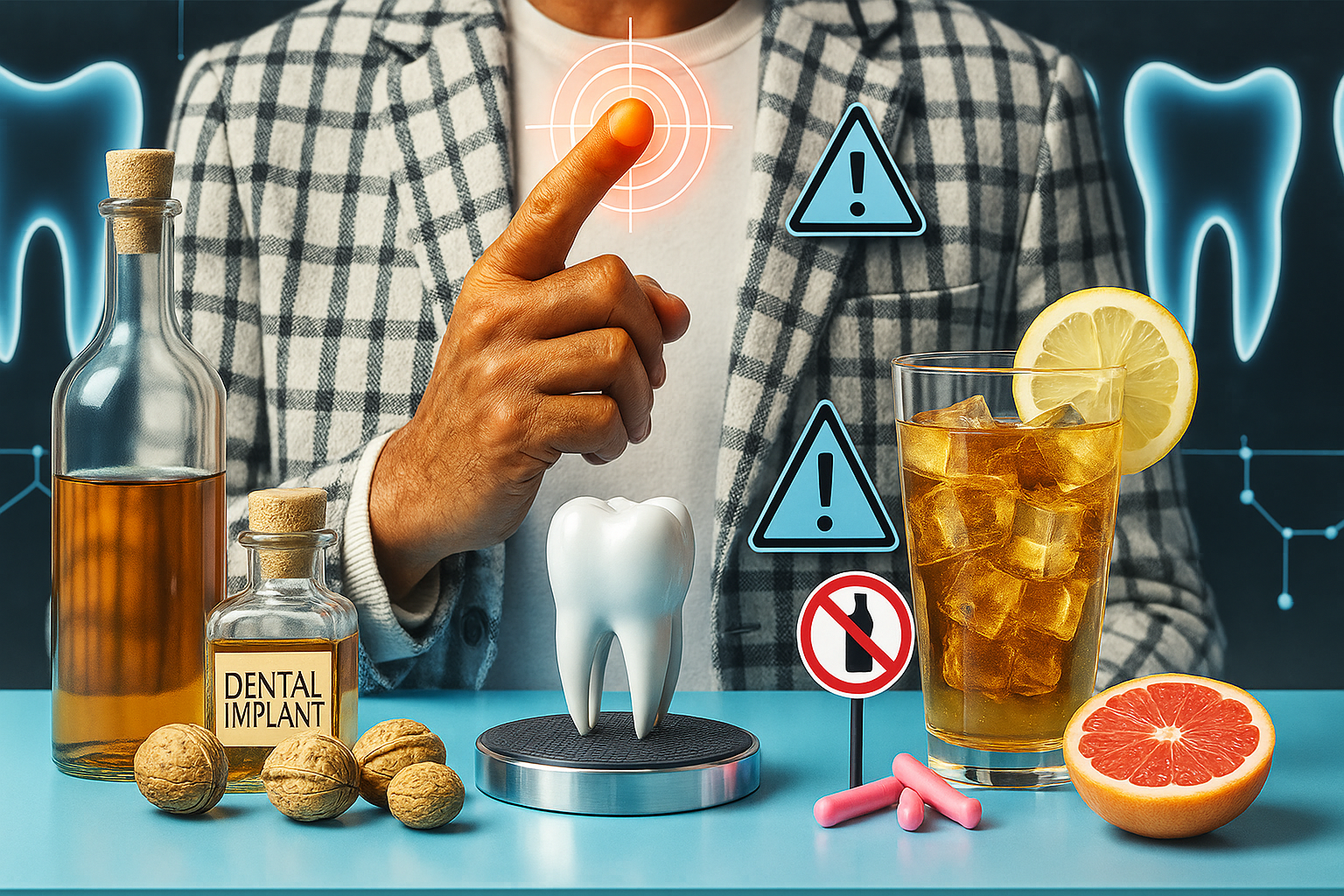Common Mistakes to Avoid After a Dental Implant Procedure
- Home
- Blog
- Dental Implants
- Dental Care
Common Mistakes to Avoid After a Dental Implant Procedure
Dental implants are a long-term solution for missing teeth, but their success depends on proper aftercare. Many patients unknowingly make mistakes that can delay healing or cause implant failure. If you've recently had dental implants in Bangalore (Sarjapur Road) or are planning to get one, avoid these common mistakes to ensure the best results!
Common Concerns About Replacing Missing Teeth
What should I avoid after dental implant surgery?
How long does it take for a dental implant to heal?
Can smoking affect my dental implants?
What foods should I avoid after getting implants?
Best post-surgery care tips for dental implants
1. Ignoring Post-Surgery Instructions
Your dentist provides specific post-operative instructions to ensure proper healing. Ignoring these can lead to complications or implant failure.
What You Should Do:
Follow prescribed medications for pain relief and infection prevention
Avoid touching or poking the implant site with your tongue or fingers
Use an ice pack to reduce swelling in the first 24 hours
Attend all follow-up appointments to monitor healing progress
Pro Tip: Always reach out to your dentist if you notice unusual pain, swelling, or bleeding!
2. Smoking or Drinking Alcohol Too Soon
Smoking and alcohol slow down healing and increase the risk of implant failure.
Why It's Harmful:
Smoking reduces blood flow, slowing gum and bone healing
Alcohol irritates tissues and can interfere with medication effects
Both increase the risk of infection and implant rejection
Solution: Quit smoking at least 2 weeks before and after surgery for best results.
3. Eating Hard, Crunchy, or Sticky Foods
Your implant site needs time to heal, and eating the wrong foods can cause discomfort or dislodge the implant.
Foods to Avoid:
Hard nuts & chips (pressure on implant site)
Sticky candies & chewing gum (can pull on stitches)
Hot & spicy foods (can irritate healing gums)
Carbonated drinks (can slow down healing)
Best Foods for Healing: Soft foods like yogurt, mashed potatoes, scrambled eggs, and smoothies.
4. Brushing Too Hard or Using the Wrong Toothpaste
Brushing is essential, but using the wrong technique can harm the healing site.
How to Brush Safely:
Use a soft-bristled toothbrush to avoid irritating gums
Avoid whitening toothpaste—it contains abrasives that can damage implants
Use an alcohol-free mouthwash to reduce bacteria without irritation
Pro Tip: Consider using a water flosser for gentle cleaning around implants!
5. Strenuous Physical Activity Too Soon
Exercise can increase blood flow and swelling, delaying recovery.
Avoid for at least 3–5 days:
Heavy lifting
Running & high-intensity workouts
Bending over (can cause bleeding)
Light walking is okay, but avoid activities that put pressure on the surgical area.
6. Skipping Prescribed Medications
Pain and antibiotics help with comfort and infection prevention, so skipping them can cause complications.
Stick to Your Medication Plan:
Take pain relievers as prescribed (avoid aspirin, which can cause bleeding)
Finish your full course of antibiotics to prevent infections
Use antibacterial mouth rinses as recommended
7. Not Attending Follow-Up Appointments
Skipping your post-surgery checkups means your dentist can't monitor the healing process.
Why It's Important:
Ensures the implant is integrating properly with the bone
Detects any early signs of infection or complications
Allows for necessary adjustments to ensure long-term success
Pro Tip: Book regular checkups every 6 months to maintain implant health!
Find the Best Dental Implant Aftercare in Bangalore (Sarjapur Road)
Looking for expert implant care? Choose a clinic that offers:
Personalized post-surgery care plans
Advanced healing techniques for faster recovery
Emergency dental support for complications
Patient education on proper implant maintenance
Dental implants are a lifetime investment, and proper aftercare is crucial for their success. By following post-surgery guidelines, avoiding harmful habits, and attending checkups, you can ensure your implants remain strong and healthy.

